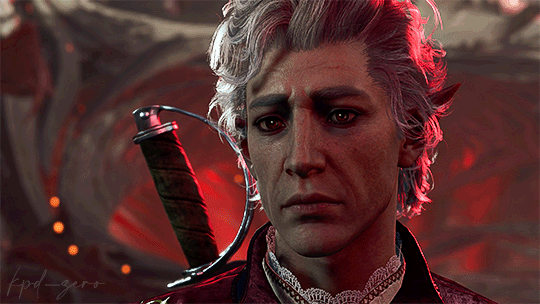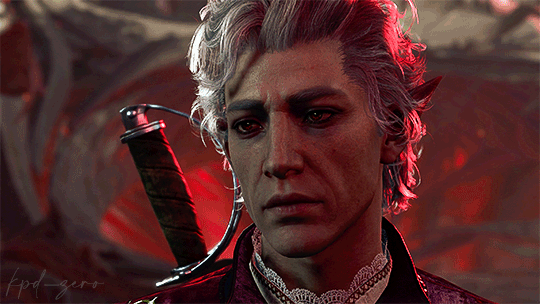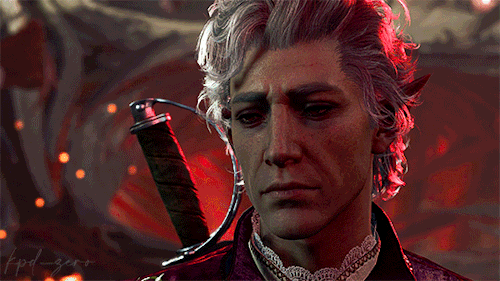Hang On I’m Trying To See Something
hang on I’m trying to see something
don’t tell me the name of your pet, just tell me in the tags the name you call them that’s got nothing to do with their actual name
More Posts from Veralinlux and Others
Oh, haha- I was gonna request unhinged/creepy Sun- but you beat me to it! Already drawn 😁
Hehehe
Here he goes crazy again










@roach-works // Melissa Broder, "Problem Area" // Mary Oliver, "The Return" // @annavonsyfert // Koyoharu Gotouge, Demon Slayer // Haruki Murakami, Dance Dance Dance // David Levithan, How They Met and Other Stories // Tennessee Williams, Notebooks

Godwyn the Golden: Prince of Death
I don’t know why but death and godwyn lore in elden ring has enraptured me the past week. My favorite theory is that while his soul is dead, his mind/brain along with his body is still alive and he’s aware of what’s happening to him. It’s so perfectly fucked up.
Face close up under the cut

Alright.
You ready for a hard 'tag your oc' challenge?
Tag an oc who doesn't have childhood trauma. At all. Who's family is still alive.
I'll wait.



I wish the person who decided to give us a close up look at Astarion's face when we're entering the dialogue, a very pleasant day :)
For all you Messmer writers/artists fighting with his Shakespearean speech: this guide is straightforward and has multiple parts if you click around. Here’s a small chart with terms of address, examples of word order/basic questions, and some verbs.
Here’s a simple explanation of “-eth” and “-est” verb endings.
Ranni and several other characters also speak this way or in a similar fashion. Something to note is that “you” was used by lower-ranking people to address those of a higher rank/status, and “thou/thee” by higher-ranking people to address those of a lower rank/status. Alternatively, nobles used “you” amongst themselves, which adds some flavor to dialogue.
A lot of Shakespearean dialogue is meant to showcase how performative and ridiculous the nobility or upper-classes were during his time (and still is nothing changed lmao). There are tons of Shakespearean dictionaries as well; a lot of words we use today meant something entirely different then, or had different contextual interpretations. It’s meant to sound flowery and has a particular cadence that I recommend listening to as well. Find a good reading on YouTube and really listen to how the words fit against each other. No, you don’t have to write in metered verse (sweats in iambic pentameter) or rhymed prose, but it helps develop dialogue that flows and feels more natural when you can imagine how it sounds as you write.
Here’s a glossary. Have fun with it, don’t let it roll you. Weak foe ahead.
when will it be my turn for a robot to die above my body while protecting me
-
 oliverqueenlance reblogged this · 1 week ago
oliverqueenlance reblogged this · 1 week ago -
 bean-beasties liked this · 1 week ago
bean-beasties liked this · 1 week ago -
 jamifed reblogged this · 1 month ago
jamifed reblogged this · 1 month ago -
 greencreeker reblogged this · 1 month ago
greencreeker reblogged this · 1 month ago -
 thatdickhead reblogged this · 1 month ago
thatdickhead reblogged this · 1 month ago -
 jackiefour reblogged this · 1 month ago
jackiefour reblogged this · 1 month ago -
 catpile-irl reblogged this · 1 month ago
catpile-irl reblogged this · 1 month ago -
 sumquiasum reblogged this · 1 month ago
sumquiasum reblogged this · 1 month ago -
 xtryis liked this · 1 month ago
xtryis liked this · 1 month ago -
 h3k9 reblogged this · 1 month ago
h3k9 reblogged this · 1 month ago -
 acrylicaafternoons liked this · 1 month ago
acrylicaafternoons liked this · 1 month ago -
 captainorangejacket reblogged this · 1 month ago
captainorangejacket reblogged this · 1 month ago -
 dummerjan reblogged this · 1 month ago
dummerjan reblogged this · 1 month ago -
 antique-forvalaka reblogged this · 1 month ago
antique-forvalaka reblogged this · 1 month ago -
 evolutionsbedingt reblogged this · 1 month ago
evolutionsbedingt reblogged this · 1 month ago -
 evolutionsbedingt liked this · 1 month ago
evolutionsbedingt liked this · 1 month ago -
 sou-kk reblogged this · 1 month ago
sou-kk reblogged this · 1 month ago -
 lykanth reblogged this · 1 month ago
lykanth reblogged this · 1 month ago -
 gottalovecatss reblogged this · 1 month ago
gottalovecatss reblogged this · 1 month ago -
 gottalovecatss liked this · 1 month ago
gottalovecatss liked this · 1 month ago -
 retourpresdetoi reblogged this · 1 month ago
retourpresdetoi reblogged this · 1 month ago -
 retourpresdetoi liked this · 1 month ago
retourpresdetoi liked this · 1 month ago -
 killeveryoneforever reblogged this · 1 month ago
killeveryoneforever reblogged this · 1 month ago -
 killeveryoneforever liked this · 1 month ago
killeveryoneforever liked this · 1 month ago -
 peachybeesplease reblogged this · 1 month ago
peachybeesplease reblogged this · 1 month ago -
 tyrannosaurme reblogged this · 1 month ago
tyrannosaurme reblogged this · 1 month ago -
 tyrannosaurme liked this · 1 month ago
tyrannosaurme liked this · 1 month ago -
 hidden-merry367 liked this · 1 month ago
hidden-merry367 liked this · 1 month ago -
 charlietoday reblogged this · 1 month ago
charlietoday reblogged this · 1 month ago -
 aspens-treehouse reblogged this · 1 month ago
aspens-treehouse reblogged this · 1 month ago -
 aspens-treehouse liked this · 1 month ago
aspens-treehouse liked this · 1 month ago -
 rnanlync liked this · 1 month ago
rnanlync liked this · 1 month ago -
 el-michoacano reblogged this · 1 month ago
el-michoacano reblogged this · 1 month ago -
 flyingredrobin liked this · 1 month ago
flyingredrobin liked this · 1 month ago -
 actuallyacryptid reblogged this · 1 month ago
actuallyacryptid reblogged this · 1 month ago -
 accidentally-in-hell reblogged this · 1 month ago
accidentally-in-hell reblogged this · 1 month ago -
 parad0xymoron liked this · 1 month ago
parad0xymoron liked this · 1 month ago -
 devourerofmugsofcoffe reblogged this · 1 month ago
devourerofmugsofcoffe reblogged this · 1 month ago -
 alyarose reblogged this · 1 month ago
alyarose reblogged this · 1 month ago -
 alyarose liked this · 1 month ago
alyarose liked this · 1 month ago -
 alyarose reblogged this · 1 month ago
alyarose reblogged this · 1 month ago -
 alice-moth liked this · 1 month ago
alice-moth liked this · 1 month ago -
 dioskailacs reblogged this · 1 month ago
dioskailacs reblogged this · 1 month ago -
 travescharic reblogged this · 1 month ago
travescharic reblogged this · 1 month ago -
 m1sf1tb1scu1t reblogged this · 1 month ago
m1sf1tb1scu1t reblogged this · 1 month ago -
 hummingbirdcas reblogged this · 1 month ago
hummingbirdcas reblogged this · 1 month ago -
 snowbazzledestielshipper reblogged this · 1 month ago
snowbazzledestielshipper reblogged this · 1 month ago -
 snowbazzledestielshipper liked this · 1 month ago
snowbazzledestielshipper liked this · 1 month ago

Hello! I'll post my writing here whenever I finish them. Find me at Ao3
182 posts


